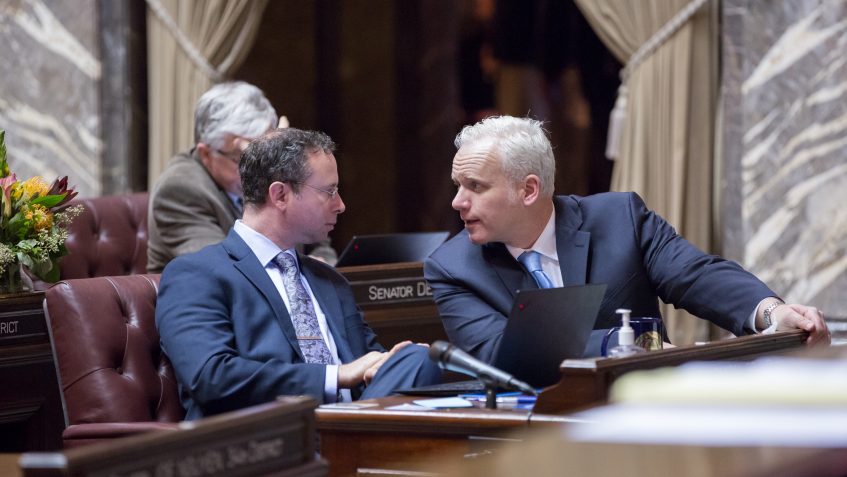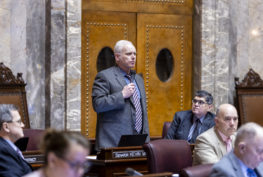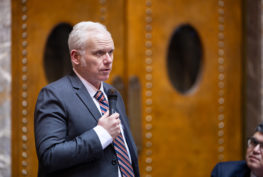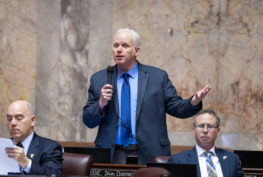The operating budget passed late today by the Legislature includes $20,000 to fund a study of the feasibility of the state producing certain generic drugs.
“The rising cost of prescription drugs is a strain on many households, even for longtime drugs like insulin that haven’t changed over the years,” said Sen. Kevin Van De Wege (D-Sequim), who inserted the proviso in the budget. “If the state can produce a generic version of insulin and other drugs, the lower cost would be a boon to those who need them.”
Van De Wege’s proviso directs the state Department of Health to research the feasibility of the state’s ability to produce generic drugs, with a priority on insulin, and report its findings to the Legislature by Dec. 1. Insulin is prioritized because there is no generic version of the widely used drug and prices have tripled in the past decade even though there have been no significant improvements to the drug.
“Whether it’s because there’s no generic substitute or because too few companies produce a particular drug, the prices for many drugs are far higher than they need to be,” said Sen. Karen Keiser (D-Des Moines), who helped draft the proviso. “If the state can fill this need, we could bring relief to untold numbers of households. Frankly, just the presence of another drug producer might pressure other companies to lower their prices in response to increased competition.”
A state program would not face the shareholder pressure to produce steep profits that pharmaceutical companies face, Van De Wege said, and could keep prices more in line with the actual cost of production.
“Insulin has been around for nearly 100 years, but instead of getting less expensive, prices keep going up at a rate higher than inflation,” he said. “That makes no sense. If the state is able to provide essential everyday drugs like these at more reasonable prices, we owe it to the public to do so.” In 2016, Washington State Attorney Gen. Bob Ferguson joined several other states in filing a lawsuit against the generic drug industry over anti-competitive behavior including price fixing and market rigging. The lawsuit has since grown to cover 16 companies and 300 drugs. In 2016, the Government Accountability Office reported to Congress that the prices of 300 generic drugs had increased by more than 100 percent in the year 2015 alone.




